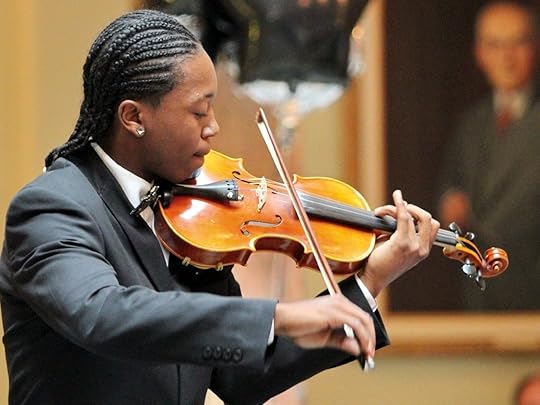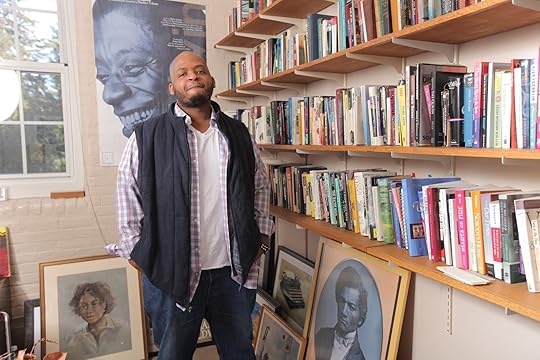Mark Anthony Neal's Blog, page 874
August 16, 2013
'Sugar in the Blood': New Book on A Family Tree That Includes Slaves — And Slave Owners
Published on August 16, 2013 08:03
August 15, 2013
Book Trailer: 'AFROFUTURISM: The World of Black Sci Fi & Fantasy Culture' by Ytasha L. Womack
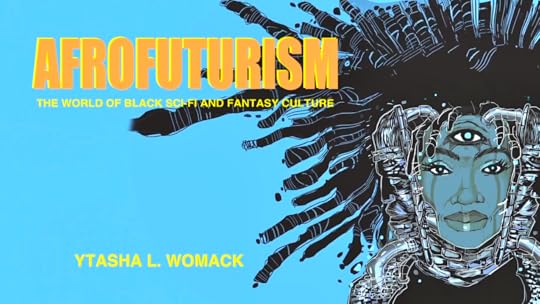 www.iafrofuturism.com
www.iafrofuturism.comAFROFUTURISM: The World of Black Sci Fi & Fantasy Culture (Lawrence Hill Books) by author Ytasha L. Womack (Post Black, Rayla 2212) BOOK LAUNCHES OCT 2013. Comprising elements of the avant-garde, science fiction, cutting-edge hip-hop, black comix, and graphic novels, Afrofuturism spans both underground and mainstream pop culture. With a twofold aim to entertain and enlighten, Afrofuturists strive to break down racial, ethnic, and all social limitations to empower and free individuals to be themselves. www.iafrofuturism.com. This book introduces readers to the burgeoning artists creating Afrofuturist works, the history of innovators in the past, and the wide range of subjects they explore. From the sci-fi literature of Samuel Delany, Octavia Butler, and NK Jemisin to the musical cosmos of Sun Ra, George Clinton, and the Black Eyed Peas' will.i.am, to the visual and multimedia artists inspired by African Dogon myths and Egyptian deities, topics range from the "alien" experience of blacks in America to the "wake up" cry that peppers sci-fi literature, sermons, and activism. www.iafrofuturism.com*Book cover by John Jennings*Animation by Christopher Adams*Music "Radhe Shyam by Alice Coltrane (WE DO NOT OWN THE RIGHTS TO THIS MUSIC)
Published on August 15, 2013 19:36
#BlackPowerIsForBlackMen: Letters from Brothers Writing to Live
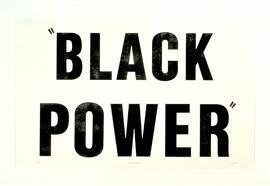
#BlackPowerIsForBlackMen: Letters from Brothers Writing to Live by Brothers Writing to Live | The Feminist Wire | NewBlackMan (in Exile)
We are a collective of black men dedicated to challenging the ideas of black masculinity and manhood through the written word. Through our work we explore the ugliest parts of ourselves and our community, in the hope that we can illuminate the beauty that we know exists as well. We challenge each other daily to create and be more than what this racist, patriarchal society has raised us to be. But simply wanting it will not do. It requires tons of hard work, and much of that work includes listening to our sisters, black women, who tend to bear the brunt of our messiness. Unfortunately, in this regard, we have been woefully absent.
When the hashtag #Blackpowerisforblackmen, created by Ebony.com editor Jamilah Lemeiux, took over Twitter, it was a clear sign that we haven’t been doing enough. Thousands of our sisters (and brothers) tweeted for hours about the imbalance in our community. We, black men, tend to pride ourselves on our anti-white racial supremacy activism but often fail to reach out and consider the pain and trauma faced by the women in our lives. Our culture actively denigrates the very existence of black women. We take their love, support, nourishment, and spiritual presence for granted. As a whole, black men have not reciprocated our love and support in a way that affirms the humanity and dignity of black womanhood in the face of white supremacy, patriarchy, heterosexism, homophobia, transphobia, misogyny, sexual violence, physical and verbal abuse.
#Blackpowerisforblackmen became the call, and as black men dedicated to fighting alongside our sisters, we have taken up the responsibility of answering. As individuals, we recognize where we have fallen short, and as a community we make a promise to participate in deep self-reflection and correction.
This ain’t just an apology; it’s a commitment.___________________________________
Dear @BougieBlackGurl:
You tweeted the following: “I am supposed to give a cookie to the BM who are involved in their children’s lives while Single BW carry the blame #blackpowerisforblackmen”
When my daughters were babies—they are now 10 & 14—I used to relish the attention that I received when I was with them in public. The expectations held out for Black fathers have often been so low, that Black men who even show a small amount of attention to their children are lauded; I can’t say that I didn’t enjoy being thought of as special.
Yet being at daycare, or volunteering at school, I was also able to witness the women—often single mothers—who don’t parent for the prestige of it, but because it’s what they are supposed to do. Save Mother’s Day and the Hip-Hop Awards Show shout-out (often uttered after rhetorically bashing a “baby-mama”), there is very little attention to those women who put in the work, because if they don’t, nobody else will. And of course if they don’t, these women are blamed for failing, not only their children or their family, but the “Race” itself.
And this is one of the ways that male privilege functions—that which is ordinary and mundane is deemed as exceptional when done by men. When these everyday activities are done by women, they are demeaned and devalued—and all we have to do is look at what we pay folks who work in so called “women’s professions” or the fact that we so devalue, parenting, that we think that those women who are raising children on their own, and perhaps on Federal or State assistance, should be required to work outside of the home, because apparently parenting is not really work.
Mark (@NewBlackMan)__________________________
Tomi Ungerer: black Power / White Power Poster
Dear Monifa Bandele (@monifabandele),
You tweeted the following: “#blackpowerisforblackmen when trying to discuss gender privilege is black male bashing.”
I had one of those moments like the old folks do in church where all I could do was sway and say to myself “well ain’t that the truth.” It’s most disheartening because a quick glance at our past or present shows us just how dedicated black women have been to addressing the black men in this country. But when sisters speak up and ask us to consider the ways in which we have contributed to their oppression, we consider it an affront to our fragile sense of community and an attack on our manhood.
Undoubtedly, there were the brothers reacting with the predictable “not me!” responses. But those individual “not me’s!” aren’t enough to drown out the massive indifference to black women’s suffering at the hands of black men. We defend to the hilt the culture we’ve created around a toxic vision of masculinity, but can’t muster up a tenth of that energy to get into the streets and demand our sisters stop being raped, then pretend we don’t know what privilege is.
I saw one brother flat out say sexism isn’t the problem in our community. If ever there was a moment we could use a drop squad, that was it. We can pretend away our the sexism and misogyny we inflict upon black women. We mirror the worst of the defense of racism when we do and enact untold damage to the bodies and psyches of the women who have loved us most. We can stand back and pretend, as black men, we’re the only ones under attack, as we’ve done, or we can acknowledge our culpability in oppressing black women and dedicate ourselves to striving for better. The choice should be clear.
Mychal (@mychalsmith)____________________________
Dear @YoloAkili,
“#BlackPowerisForBlackMen Becuz I can’t think of ONE national march that black men organized becuz a black woman was raped or killed.”
I must have reread your tweet a hundred times today. I understood fully, maybe for the first time, that black men who profess a love for black women can’t have it both ways. The truth is too true and the stakes are too high. We can’t, as I did, call Kendrick’s verse one of the dopest lyrical performances of the year when the song is bubbling with spectacular disses of black women and black femininity, then wonder why we never organized around the killing or rape of a black woman.
We can’t watch and participate in the national obliteration and shaming of Rachel Jeantel and wonder why we never organized around the killing or rape of a black woman. We can’t lie, cheat on, or manipulate black women while convincing black women it’s so hard for us then wonder why we never organized around the killing or rape of a black woman. We can’t literally and figuratively kill and rape black woman for fun, for free, for checks, for claps from our niggas, and wonder why we never organize around the killing or rape of black woman.
No art, no person, no relationship, no sexual fantasy that kills and rapes black women is going to stop black women from being killed, hurt, and raped. If our consumption and creation doesn’t affirm, accept and explore the complicated lives of black women, we can’t be bout that life. No exceptions. Never. Shameful that after all this life, and education, and art creation, your tweet made me know that we really ain’t been bout shit. We really been encouraging black women’s death while leaning on black women for survival. Sorry ain’t enough.
Kiese (@KieseLaymon)_________________________
Dear @PrestonMitchum,
“@PrestonMitchum: #blackpowerisforblackmen because as sad as it already was, what if Trayvon were a woman?”
What if Trayvon were a woman? After reading your tweet, I contemplated that question for hours. I thought about everything I read about Trayvon Martin. I thought about all the conversations I had about Trayvon Martin. I tried to remember similar conversations about female-identified individuals. They really didn’t exist. And when they did, they were framed in the context of blaming the victim for something “she” should have done to prevent the horrendous actions perpetrated against her. If Trayvon were a woman, the story would have been told though the lens of a male because our society always allows men to speak for women, believing this act gives women a voice. We have yet to truly move past ideas of coverture and do the work to train our sons, husbands, brothers and male friends to not view women as property but as equal partners.The silencing of women is so deafening that even in life and death we want to dictate the terms of how a women can give life or how we would tell her story in death. I don’t profess to understand the myriad ways my male-privilege continually operates to suppress and oppress women but I can celebrate all women and I can do the work to love women as Rainer Maria Rilke teaches. — “Love is the commitment to be the witness to the someone else’s joy in life, not to be that joy.”
Wade (@Wade_Davis28)________________________
Dear @Blade_Varzity,
“#blackpowerisforblackmen Can someone explain exactly how BM are stopping BW from addressing ANY of these issues they’re tweeting about?”
Blade, I have come to realize that sometimes we as people,who exist on the scale of oppression (I am a Black man of immigrant parentage from a ghetto in Brooklyn who spent 1/3 of his life in prison), are so easily blinded by our own marginalized place on that scale that we are unable to see how we contribute to the oppression of others. I say this not as an indictment on you in any way, but as an expression of understanding and realization of the shrewd nature of the hierarchy of oppression and our subconscious infatuation with our own oppression.
As Black men in a patriarchal, white supremacist world its so easy not to realize our own male privilege because in comparison to white male (and female) privilege we think our whatever-privilege is minuscule. But, however minuscule, it DOES exist, particularly in the eyes of Black women, and especially when we, black men, don’t acknowledge our role in their oppression as Black. Women.
Like I said Blade, this is not an accusation just an observation. Peace, bruh.
Marlon (@marlon_79)_________________________
Dear Yolo Akili Robinson (@YoloAkili),
You tweeted the following: “#BlackPowerisForBlackMen becuz even in the Black LGBT community MALE voices (cis/trans) r still privileged over all women&genderqueer folks.”Damn, bro! Your words hit me hard—in the best way possible.
I am a gay black man who has been skilled at calling out white racism and heterosexism as weapons that have stifled my own senses of freedom. I even try do the type of self-work necessary to understand my complicity in sexism and the part I play in maintaining the patriarchy, but I know that I can do and be better.
I can do better at not only calling out sexism, misogyny, transphobia, rape culture, and so much else, but I can be a better brother to my cis and trans sisters (regardless of their sexual identities) by not taking up too much space (when I know that some spaces are often made available to me precisely because I am a black gay cis man). That is the work, my work, for sure.
We black gay men have models of the “better”, however. My brother, Kai M. Green (@Kai_MG) reminded me that some of our black gay male elders (who, too, benefited from the unearned privilege of maleness) worked hard to think and practice feminism. Kai tweeted: “#blackpowerisforblackmen bcuz we 4get Joseph Beam and Marlon Riggs were Blk feminists 2. Feminism isn’t just for cis women–& we ALL need it!” Yes, feminism is for all of us. I am in community with women I can learn with/from, remain accountable to, and engage transformative personal and social justice work alongside. I want my sisters and critically conscious brothers, as my brother Kiese once wrote, “to knock my hustle” when need be. I will do the same for you and others. That is the only way I can grow. The only way that we can be better. That is only way that I/we might truly show up as allies in the struggle to end patriarchy, the power-driven reign of “the man” (and not just the one imagined as white, but also the one who stares us black men back in the face when we look in the mirror).
Darnell (@moore_darnell)______________________
Dear Raequel Solomon (@systris2h):
“cause tyler perry and steve harvey are deemed worthy of telling US how we should be living? #blackpowerisforblackmen”
Your tweet is complicated and my feelings towards both Tyler Perry and Steve Harvey are as complicated. I’m assuming the “US” that you are referring to is black women; but even if that isn’t the case, the black community at large is still deeply affected by these two men and the public platforms they occupy. I don’t know who is deeming Perry and Harvey as “worthy” and again, I’m assuming because of the hashtag that accompanied your tweet you may have meant black men are. But I’m completely convinced what is responsible for this “christening” of Harvey and Perry’s black sagaciousness is not a population, but an institution and a doctrine.Black living is messy and difficult and is more trial and error than anything else. Anything or body that says otherwise is standing on the side of black powerlessness as opposed to black power. What is also crucial in my conceptualizing this tweet is the context that black media has carved into this moment of post-racial hopscotch and difference’s reduction. The sheer number of black faces and spaces in American media is slim to none and the ability to choose with a convicted agency is placed in jeopardy as a result. But a choice is nonetheless being made.
It would be misguided and misinformed to approach this tweet without sensitivity to gender’s role in producing it. Yes, Steve Harvey and Tyler Perry are black men and, yes, black men have participated in the patriarchal tradition of speaking for and over black women, but issues of hegemony and capitalist seduction aside, the consumers of products made by these two men make a choice to support their products and never should we, as black people, attack the people choosing or producing the product, but instead the product itself. Bottom line is this – the interrogation of the function and usefulness of the tangible products that make up a black social reality is a fundamental method to form and maintain black power in this profit-driven, privately influenced market we know as America.
Peace,
Hashim Khalil Pipkin (@ablkCharlieBrwn)___________________________
Dear Charlene Carruthers (@charlenecac),
You tweeted, “#blackpowerisforBlackmen because Frederick Douglass, Booker T. Washington and Denmark Vesey would never end up in a sex tape spoof.” You also tweeted, “Uncle Rush and Co. didn’t just pick a nameless black woman. They picked our ‘Black Moses.’ The gun wielding guide to freedom.”
You made me revisit Audre Lorde’s call for women to make use of the erotic as a source of power, a source of power that because of patriarchy, misogyny, and white supremacy has been deemed solely pornographic. There is power in the erotic—it is a site of reproduction, a site of intimacy (intimate relationships with lovers, intimate relationships with kin, intimate relationships with violence, loss and death), and a site of struggle— The erotic terrain is a site of embodied knowledge. That Black men like Uncle Rush and Co. feel it is funny to make a sex tape starring Harriet Tubman is violent and sick. They went back and sexually violated a historical figure and then disappeared the evidence (the video), but the deed was done and those ghosts will continue to haunt us like so many other “nameless Black women,” –we must speak up. The struggle that Black women have had and continue to endure in order to gain access to their erotic power is real.
Although Audre Lorde’s call was to women, it is clear that men, Black men especially, need to interrogate the erotic as well (Thank you Alexis Pauline Gumbs for this lesson). The erotic for Black men has been distorted by a violent type of pornography perpetuated by Black men as well as others—it is the notion that Black manhood is only fully realized when men through domination, take control of their houses, their women, and their stuff. The erotic as a source of knowledge cannot be fully reached until we, Black men, let go of our ideas about reclamation of some ideal manhood that was taken from us. We must let go of manhood as ownership. We spend so much time trying to reclaim some sense of humanity through manhood that we don’t see how we become the oppressors in our quests to reclaim.
If we could only realize that everything we need, we have. But then that is scary, because what is it that Black men have that we don’t want to face? Lorde stated that the erotic “lies in a deeply female and spiritual plane.” Hortense Spillers says “It is the heritage of the mother that the African-American male must regain as an aspect of his own personhood-the power of the ‘yes’ to the ‘female’ within.”
For Black men to really be able to interrogate the erotic, we must face the real truth of our vulnerability too. Because though we will not see a sex tape spoof of Booker T. Washington we know that historically and in the present day, Black men’s bodies also archive dis-(re)membering sexual traumas. We too were made to bend over and open up taking in whatever the master decided to feed us that night. But if we cannot face that in ourselves and in our bodies because we only see it as emasculation, then we lose our erotic power. We lose the power to unite with Black women. We lose the power to ultimately unite with our full selves. We lose the power to analyze the ways in which we become oppressors because we are no longer able to see Black male privilege–we only see white racism and white men. We reach for that white power not realizing we have access to something much greater, much more generative, right here in our own bodies as Black men.
Black men need to do as Hortense Spillers says and interrogate that being that we are encouraged to despise, the being that we fear will destroy our manhood, that Black woman that lies deep in us—this strength is also this vulnerability.
We are not enemies, Black men and women. Black men need to recognize that critique is love. Love asks us to grow. We need to grow.
I want you to trust me.
I understand that the love of a Black woman is a privilege often times devalued, but I value you and your love. I value the love of Harriet Tubman. I value the love of my mother—Black love, tough love, deep love, mama love, granny and auntie love, lover love, sweet potato pie love, I’m tired from working all day love, get the holy ghost and pass out love, get school clothes for baby while you still wear that same ol’ raggedy dress and make it look good love, stay up all night and watch over me when I’m sick love, I’m tired of yo’ triflin’ ass I’m leavin’ love, I’m hurt love, I’m exhausted but I’m still gonna make you dinner love, You locked up so I’mma hold it down for you love, gansta love, Black professional don’t have time to cook but let’s share a glass of wine love, I will carry your stash love, I will go down on your behalf love, I will testify in court love, young love, hot love, you getting on my nerves love, love love, Black women’s love is God love.
I will do my part to reflect that love. I will hold you when I am strong and when I am weak. I stand with you. And I vow to you that no quest for freedom of mine will begin with the devaluation of your body, spirit or intellect.
I vow to listen to you. I vow to stay open to being checked, but I will not wait on you to check me. I will work to check myself too because I understand that feminism isn’t just about your liberation it’s about OUR liberation.
If my manhood becomes a placeholder for my humanity, we are doomed. But I want to live, love.
(@Kai_MG) ______________________
Several members of the Brothers Writing to Live Collective
Brothers Writing to Live is a group of black cis and trans-men who hail from spaces across the United States. We come from myriad neighborhoods, diverse familial backgrounds, and different life worlds. We are different, indeed. And, yet, in so many ways we are the same. We are black male identified writers whose notions of blackness, manhood, and writing are as assorted as our multifaceted lives. Whether we have come from the red clay roads of Mississippi or the cement paved streets of New York City, through our writings we have mapped out similarities regarding the ways that racism, gender restrictions, capitalism, heteropatriarchy, ableism, economic disenfranchisement, heteronormativity, criminal (in)justice systems, and so much else has shaped the men that we have become and yet to be. This campaign has united the following black male writers:
Kiese Laymon, Writer & Professor at Vassar CollegeMychal Denzel Smith, Writer, Mental Health Advocate, & Cultural CriticKai M. Green, Writer, Filmmaker, & Ph.D Candidate at USCMarlon Peterson., Writer &a Youth &Community AdvocateMark Anthony Neal, Writer, Cultural Critic, & Professor at Duke UniversityHashim Pipkin, Writer, Cultural Critic, Ph.D. Candidate at Vanderbilt UniversityWade Davis, II, Writer, LGBTQ Advocate, &Former NFL PlayerDarnell L. Moore, Writer &Activist
Published on August 15, 2013 12:42
Dream Defenders Take Over Florida For Trayvon Martin (Episode Three)
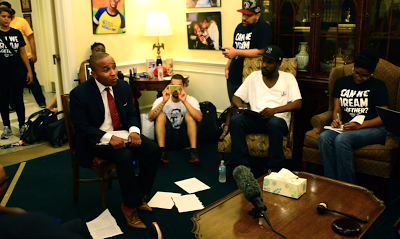 GlobalGrindTV
GlobalGrindTVThe Dream Defenders, a group of student activists in Florida, aren't deterred by Gov. Rick Scott's refusal to hold a special session on the Stand Your Ground Law that allows individuals like George Zimmerman to claim self-defense. Instead, they are taking their cause - and Trayvon Martin's memory - straight to the lawmakers themselves. Watch as they stand their own ground to repeal the controversial protection law that begets violence.
Published on August 15, 2013 09:50
August 14, 2013
Congressman John Lewis on Race, Voting & the Civil Rights Movement
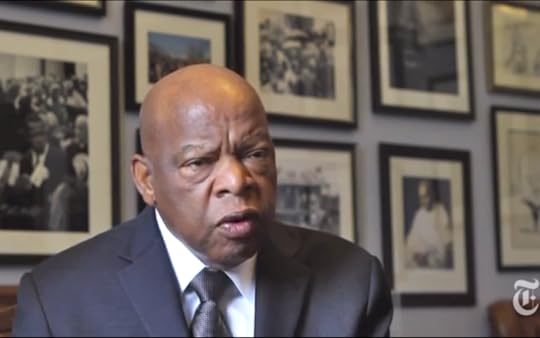 NewYorkTimesVideo
NewYorkTimesVideoAhead of the 50th anniversary of the March on Washington for Jobs and Freedom, Congressman and civil rights leader John Lewis discusses race relations and voting rights with reporter Sheryl Stolberg.
Published on August 14, 2013 19:23
Questlove Talks Hip-Hop, Soul Train & His New Memoir on 'Democracy Now'
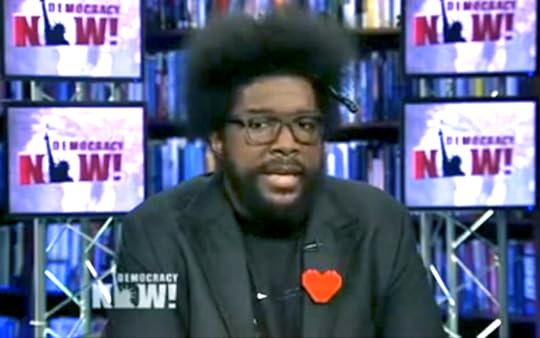 Democracy Now
Democracy NowIn a week where hip-hop culture is marking its 40th birthday -- the anniversary of the first Bronx block party thrown by New York DJ Kool Herc -- we're joined by one of its most eclectic and influential voices, Ahmir "Questlove" Thompson.
Born in West Philadelphia and immersed in music from an early age, Questlove rose to fame as the co-founder and drummer of The Roots, the legendary band that has helped define a new generation of neo-soul and conscientious rap. Well into their third decade as a group, The Roots are now the house band on NBC's "Late Night with Jimmy Fallon." Questlove is also a prolific music producer, a DJ, and an influential presence on social media, with some 2.6 million people following his tweets on everything from music to food to politics. Questlove joins us to discuss his upbringing, his musical interests, transitioning to "Late Night," and his new memoir, "Mo' Meta Blues: The World According to Questlove."
Published on August 14, 2013 19:13
Tell Me More: The Rich Heritage of African Americans in Classical Music
Published on August 14, 2013 18:33
Johnny Manziel is No Rosa Parks by David J. Leonard
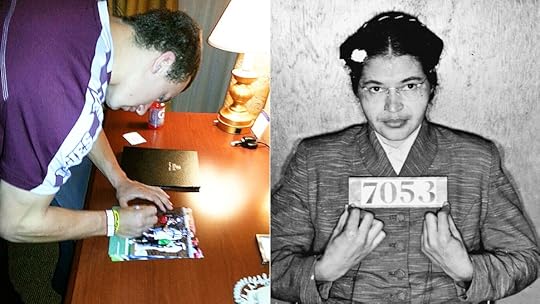 Johnny Manziel is No Rosa Parks
by David J. Leonard | NewBlackMan (in Exile)
Johnny Manziel is No Rosa Parks
by David J. Leonard | NewBlackMan (in Exile)Johnny Manziel is no Rosa Parks – six words that no one should ever need to type. Yet thanks to Jen Floyd Engel, a FOX Sports columnist, I can now cross this off my bucket list: Johnny Manziel is no Rosa Parks.
Engel, who is clearly a member of the Johnny Football Reclamation project, has gone to great lengths to elevate his importance. With “Manziel case was tipping point,”Engel recast the one time football player by day, partier by night, as a collegiate freedom fighter. That is, his defiance, his refusal to play by the NCAA rules, and his “show me the money” approach to autographs is all part of a plan to bring down the NCAA. Problematic enough, Engel is not content with simply demanding change, that NCAA do it for Johnny.” Manziel is a game changer; a transformative hero within a larger history of struggle.
“Once upon a time in this country, there were ugly, racist, tyrannical rules dictating where a black person could sit on a bus. There were all kinds of these laws, actually, created and defended by the racists who benefited from them,” notes Engel. According to Engel, this chapter in America’s history of racism (notwithstanding subprime loans, stop and frisk, mass incarceration….) ended because an “everyday woman named Rosa Parks, who had grown tired of being tired” said no. She “was merely the tipping point for many Americans long since tired of these immoral laws.” Johnny Manziel, who was also tired, albeit of the NCAA making money off his labor, name, and signature. And according to Engel, he too will lead us to the promise land of reform.
The Parks comparison is so offensive and historically ignorant, I wouldn't know where to start (a national reading of Jeanne Theoharis recent book would be a good starting point). Rosa Parks trained, sacrificed, and participated in movement; Johnny is a movement for/about himself. A movement is not Johnny Football, his friend, and his sharpie.
Rather than joining a movement, partnering with a group like National College Players Association(dare I say a modern day sports equivalent of the Highlander Folk School or SCC), or voicing his support for the O’Bannon lawsuit, Manziel followed in the footstep of his capitalism forefathers: he got paid. And now he might get punished for that reported rule violation.
And for that, he is Rosa Parks. He is a tipping point. She writes, “On a much less historically significant scale, so it is with Johnny Football — and no, this is not intended in any way to compare the vast evil of Jim Crow to an incompetent NCAA investigation, or to slings from TV commentators.”
There is so much wrong with the comparison, from the hypocrisy of a writer who chastised Terrelle Pryor for rule’s violations to the historic ignorance about the civil rights movement. Dave Zirin articulates this with great precision and brilliance how misguided and historically myopic the comparison is between Manziel (not yet “an accidental activist”) and Rosa Parks, “the mother of the movement:”
By comparing the two, Engel does more than trivialize the bravery of Parks. She traffics in a myth about who Parks was and why she chose to fight the indignities of the Jim Crow South. In Engel’s telling—and this is the kindest possible interpretation—Manziel, like Parks, is the unconscious activist thrust by circumstance into firing the first shots at an unjust system.
Zirin and several others make clear the many problems of the column. However, as easy as it is to dismiss Engel, her reclamation of Johnny Football, and her denial of the racial implications here (“This has absolutely zero to do with race. What I believe to be true is, after years of watching black kids, white kids and mostly poor kids of all colors villainized for accepting a free sandwich or plane fare to go home and attend a funeral or, God forbid, wanting a cut of the billions of dollars they make for people not doing much in the way of heavy lifting, this was America’s tipping point”) has become commonplace. ESPN might as well start a network dedicated to all things Johnny. This column is a symptom of a larger set issues operating through Manziel.
Race has everything to do with Johnny Manziel. His whiteness matters. It matters when Engel recast this moment as a tipping point; it matters when commentators use this moment to spotlight the hypocrisy of the NCAA; it matters that “he’s just 20” and “he’s behaving like other college students” has become the commonplace defense of his daily transgressions. It matters as we come to grips with fact that he was celebrated as the greatest QB since
His whiteness matters whether looking at his popularity or in examining the spotlight shining on either his “issues” or his ability to change collegiate sports. “Somehow, America loves Johnny Football. We love him so much that we’re now ready to overthrow the NCAA and the stupid rulebook that might deny us the privilege of watching Manziel attempt to duplicate his improbable freshman season. We love this rich, pampered, Justin Bieber-wannabe so much that we’re now apparently ready to deal with the fraudulence of amateurism,” writes Jason Whitlock.
Not somehow – it’s called racism; it’s called the “wages of whiteness,” it’s called a sympathy or empathy gap. It’s not a coincidence that black athletes, from Reggie Bush to Terrelle Pryor, from Spencer Haywood to Ed O’Bannon have been demonized as ungrateful, greedy, selfish, and criminal, while Johnny Football is re-imagined as a victim of the horrible NCAA. As a hero; as an agent of change. This is no coincidence but part and parcel with the logic and rules of American racism.
The ability to see Manziel, the son of a wealthy Texas family, as a victim of the NCAA, is a not so subtle reminder of how race operates within contemporary America. Because of his whiteness, the dominant narrative legibly (Neal 2013) sees Manziel as a victim, as evidence of exploitation, as evidence of an NCAA in need of change. Black athletes are illegible in this context. And this isn’t simply about empathy and America’s race colored glasses.
With black athletes, the emphasis is always on how they are compensated with an education and with the opportunity to attend a college or university. The subtext here is that without a scholarship and without athletics, they would not be on campus. That is they are not deserving (or visible) outside of a sporting context. As such, irrespective of the millions generated through blood sweat and tears, primarily African American football and basketball players should be content since without the NCAA they would be “stuck in the ghettos.” Such racist assumptions seem to rationalize the systemic exploitation of college athletes and the celebration of Johnny Manziel as deserving of compensation.
This sort of racist logic mirrors that of MLB, and that of transnational capitalism. It reminds me of a baseball scout, who seemingly justified the exploitation of Latin American baseball players, the horrible work conditions, and the abysmal signing bonuses by highlighting the “opportunity” otherwise unavailable: “These guys, if they don’t play in the big leagues they’re going to end up selling mangoes in the street for the equivalent of a quarter.” The ability to see exploitation of Johnny Football and not his African American peers embodies this worldview.
Irrespective of successes on or off the field, irrespective of hard work and dedication on and off the field, irrespective of bloated coaches salaries, billion dollar TV deals, free advertisement, and a collegiate athletics paid for my football and basketball teams, the Terrell Pryors or Reggie Bushes of the world need to just shut up and be grateful because without the NCAA, they would be “selling mangos.” They are paid with opportunity; Johnny already had opportunity (and a Benz) so the NCAA better dig into those corporate lined pockets. Yes, race matters.
***
David J. Leonard is Associate Professor in the Department of Critical Culture, Gender and Race Studies at Washington State University, Pullman. Leonard’s latest books include After Artest: Race and the Assault on Blackness (SUNY Press) and African Americans on Television: Race-ing for Ratings (Praeger Press) co-edited with Lisa Guerrero. He is currently working on a book Presumed Innocence: White Mass Shooters in the Era of Trayvon about gun violence in America.
Published on August 14, 2013 18:13
August 13, 2013
Author Kiese Laymon Finally Comprehends His Mother's Worry
Published on August 13, 2013 12:35
August 12, 2013
Beat Making Lab in Fiji: "Trapped in Paradise" (ep. 2)
 Beat Making Lab | PBS Digital Studios
Beat Making Lab | PBS Digital StudiosWelcome to Fiji. Local rapper/producer Dave Lavaki (aka Mr. Grin) explains how they are building a scene 8000 miles away from the music industry.Filmmaker: Saleem Reshamwala
Music: Sammy G, Apple Juice Kid, Fiji Beat Making Lab, Mr. Grin, Tropic Thunda, E3
Filmed at: Oceania Centre for Arts, Culture and Pacific Studies at The University of the South Pacific
Thanks: Dave Lavaki (aka Mr. Grin), Dana McMahan, Judith Cone, Dr. Mark Katz, Fiji Beat Making Lab, Pierce Freelon, Saleem Reshamwala, Apple Juice Kid, US Embassy of Fiji
Published on August 12, 2013 17:42
Mark Anthony Neal's Blog
- Mark Anthony Neal's profile
- 30 followers
Mark Anthony Neal isn't a Goodreads Author
(yet),
but they
do have a blog,
so here are some recent posts imported from
their feed.



